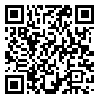

Volume 24, Issue 2 (spring 2018)
Intern Med Today 2018, 24(2): 79-87 |
Back to browse issues page
Download citation:
BibTeX | RIS | EndNote | Medlars | ProCite | Reference Manager | RefWorks
Send citation to:



BibTeX | RIS | EndNote | Medlars | ProCite | Reference Manager | RefWorks
Send citation to:
Edalatmanesh M A, Yazdani M, Davoodi A, Rafiei S. Anxiolytic Effect of Lithium Chloride in Model of PTZ-Induced Seizure. Intern Med Today 2018; 24 (2) :79-87
URL: http://imtj.gmu.ac.ir/article-1-2894-en.html
URL: http://imtj.gmu.ac.ir/article-1-2894-en.html
1- Department of Biology, College of Sciences, Shiraz Branch, Islamic Azad University, Shiraz, Iran. , amin.edalatmanesh@gmail.com
2- Department of Biology, College of Sciences, Shiraz Branch, Islamic Azad University, Shiraz, Iran.
3- Department of Psychology, College of Humanities, Shiraz Branch, Islamic Azad University, Shiraz, Iran.
4- Department of Exercise Physiology, Kish International Campus, Tehran University, Kish, Iran.
2- Department of Biology, College of Sciences, Shiraz Branch, Islamic Azad University, Shiraz, Iran.
3- Department of Psychology, College of Humanities, Shiraz Branch, Islamic Azad University, Shiraz, Iran.
4- Department of Exercise Physiology, Kish International Campus, Tehran University, Kish, Iran.
Abstract: (6354 Views)
Aims: Epilepsy is a brain disorder characterized by repeated and spontaneous attacks which can lead to neuronal decline or death and behavioral disorders, such as anxiety, and numerous studies have shown neuroprotective effects of the lithium. This study evaluated the anxiolytic effect of administration of lithium chloride (LiCl) in penthylentetrazole (PTZ) induced seizure rat model.
Materials & Methods: In present experimental study, 50 male Wistar rats were divided into 5 groups control, PTZ+Saline, PTZ+Li20, PTZ+Li40 and PTZ+Li80, randomly. To induce convulsions and epilepsy model, repeated doses of PTZ were injected (40 mg/kg, i.p) for 5 consecutive days. After observing the 5 stages of seizures based on Racine’s scale, test groups, received lithium chloride in three doses (20, 40 and 80 mg/kg/BW, i.p) for 14 days. In order to assess anxiety and exploratory behaviors, elevated plus maze and open field tests were done. Then, the hippocampal level of BDNF was measured using ELISA. The results were analyzed by ANOVA and Tukey post hoc.
Findings: Our finding showed an increased rate of anxiety with low level of hippocampal BDNF in PTZ receiver rats. Treatment with lithium chloride especially at the lowest dose (20 mg/kg) showed a significant difference in reducing anxiety and increasing of BDNF level compared to the PTZ receiver group.
Conclusion: Anxiolytic-like effects of lithium may improve the symptoms of anxiety in PTZ-induced seizure.
Materials & Methods: In present experimental study, 50 male Wistar rats were divided into 5 groups control, PTZ+Saline, PTZ+Li20, PTZ+Li40 and PTZ+Li80, randomly. To induce convulsions and epilepsy model, repeated doses of PTZ were injected (40 mg/kg, i.p) for 5 consecutive days. After observing the 5 stages of seizures based on Racine’s scale, test groups, received lithium chloride in three doses (20, 40 and 80 mg/kg/BW, i.p) for 14 days. In order to assess anxiety and exploratory behaviors, elevated plus maze and open field tests were done. Then, the hippocampal level of BDNF was measured using ELISA. The results were analyzed by ANOVA and Tukey post hoc.
Findings: Our finding showed an increased rate of anxiety with low level of hippocampal BDNF in PTZ receiver rats. Treatment with lithium chloride especially at the lowest dose (20 mg/kg) showed a significant difference in reducing anxiety and increasing of BDNF level compared to the PTZ receiver group.
Conclusion: Anxiolytic-like effects of lithium may improve the symptoms of anxiety in PTZ-induced seizure.
Keywords: PTZ [https://www.ncbi.nlm.nih.gov/mesh/67511996], Anxiety [https://www.ncbi.nlm.nih.gov/mesh/68001007], Lithium Chloride [https://www.ncbi.nlm.nih.gov/mesh/?term=Lithium+Chloride], BDNF [https://www.ncbi.nlm.nih.gov/mesh/68019208]
Type of Study: Original |
Subject:
Basic Medical Science
Received: 2017/10/28 | Accepted: 2018/01/9 | Published: 2018/05/8
Received: 2017/10/28 | Accepted: 2018/01/9 | Published: 2018/05/8
English Expanded Abstract [HTML 27 KB] (203 Download)
| Rights and permissions | |
 |
This work is licensed under a Creative Commons Attribution-NonCommercial 4.0 International License. |



